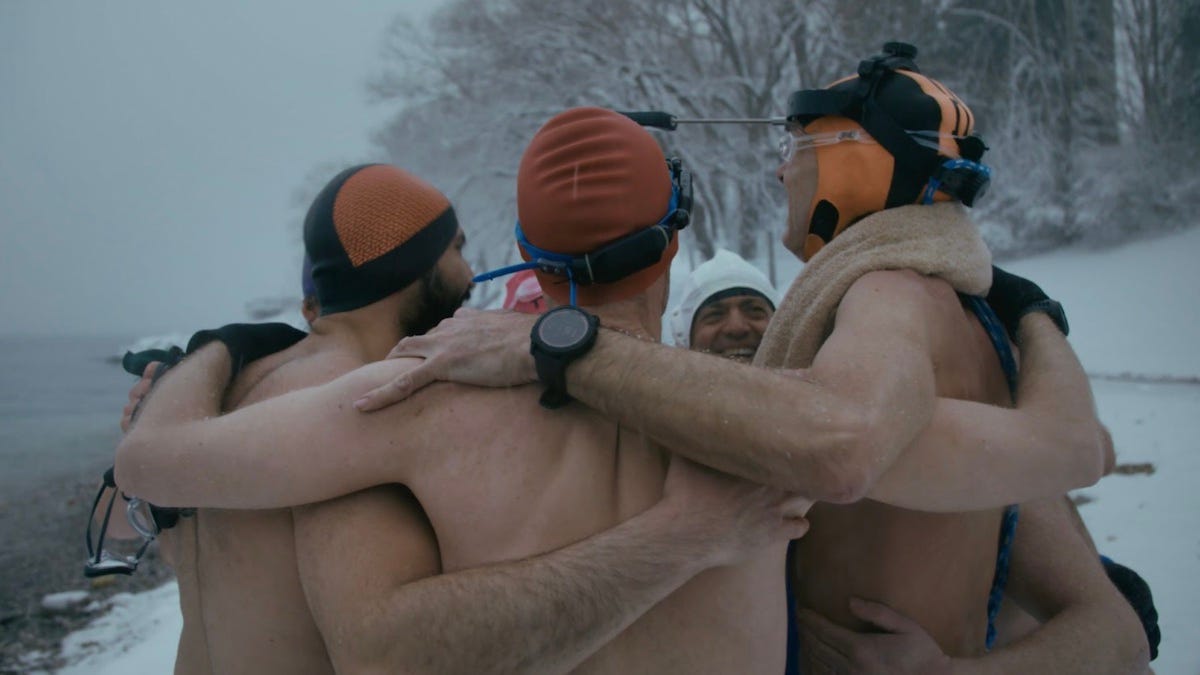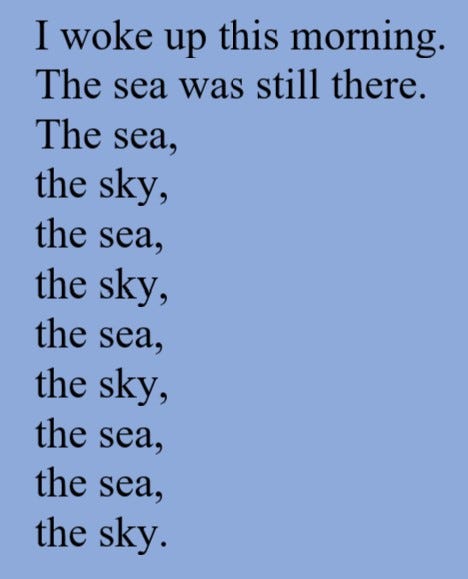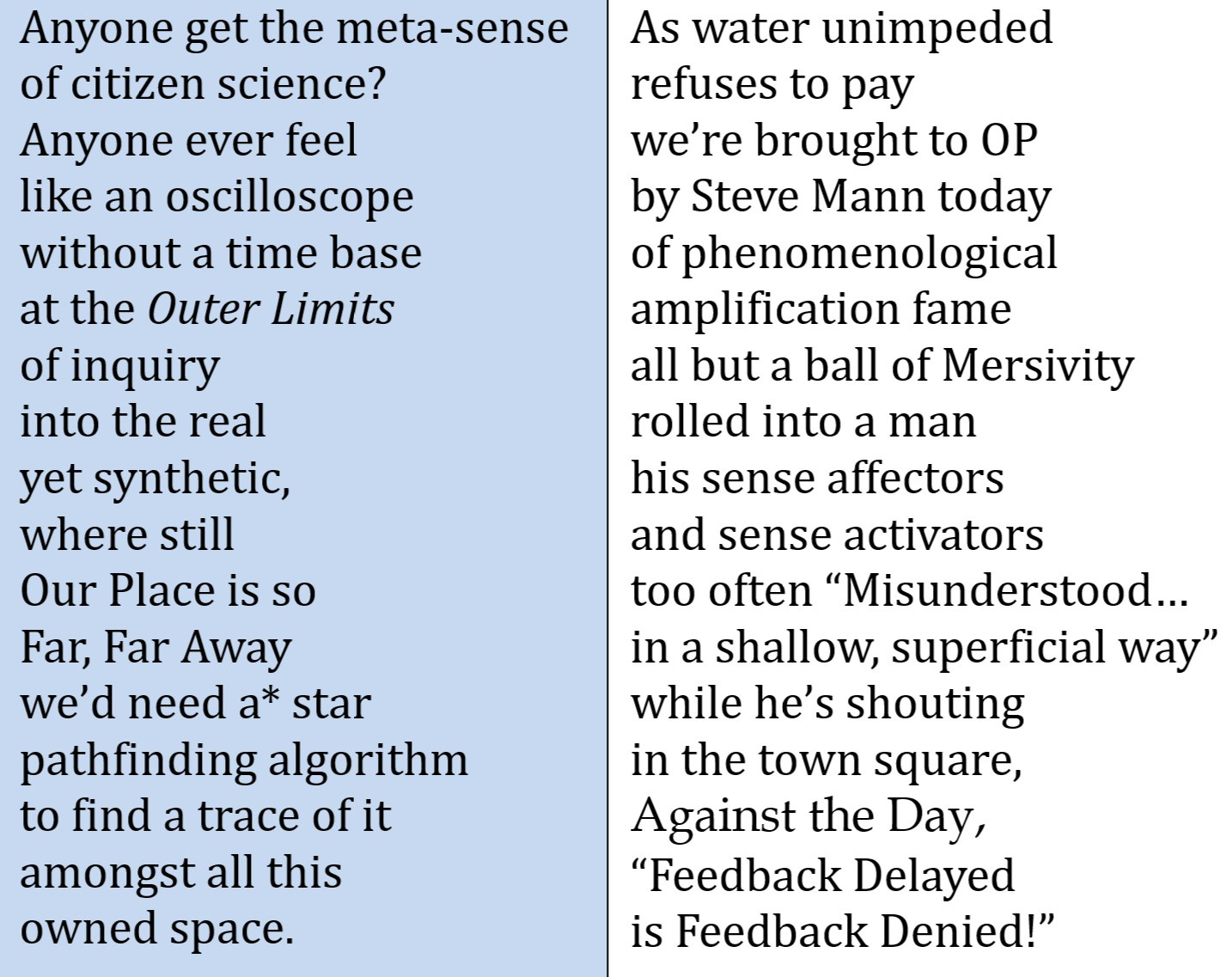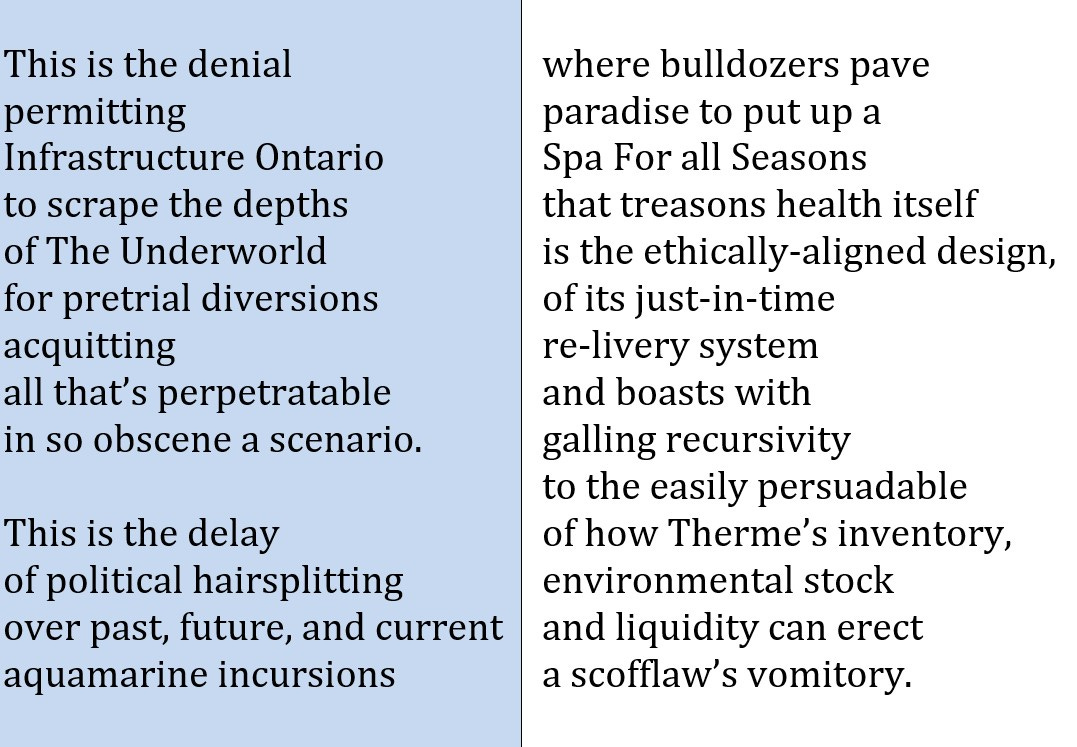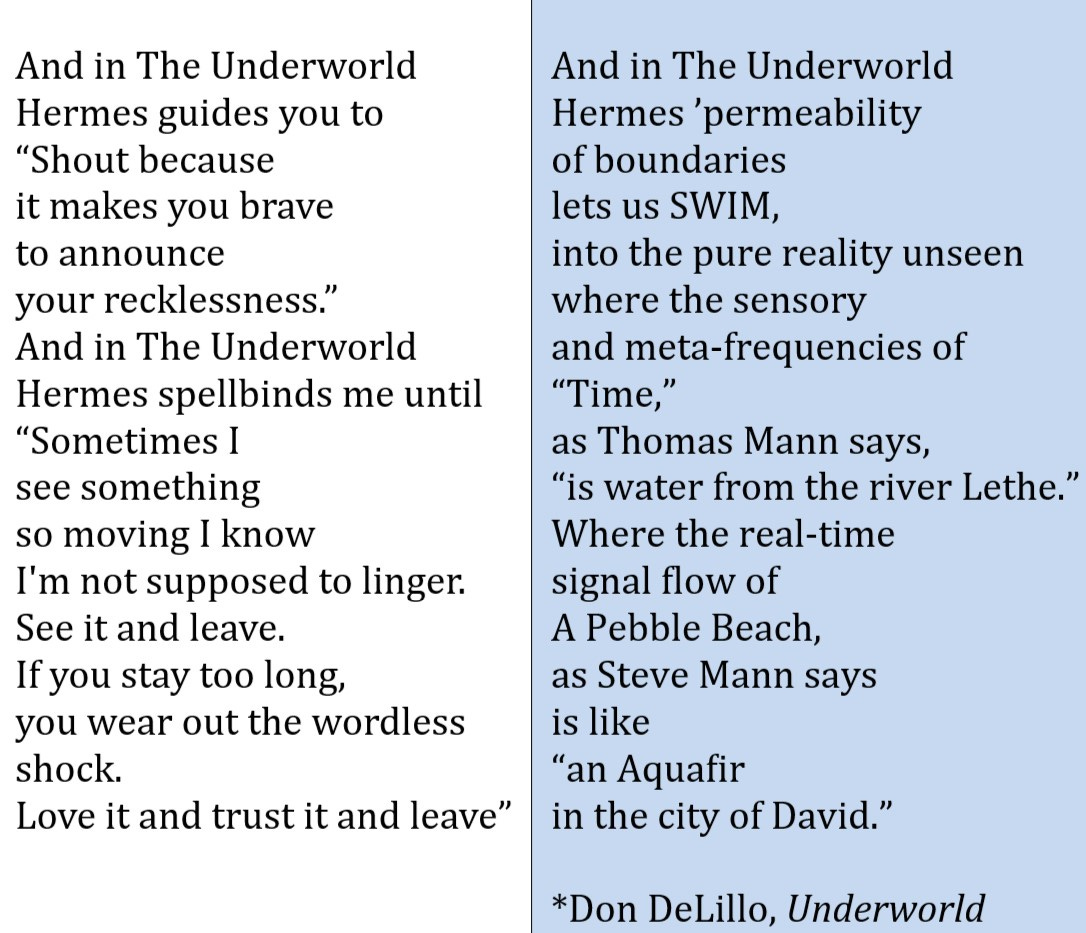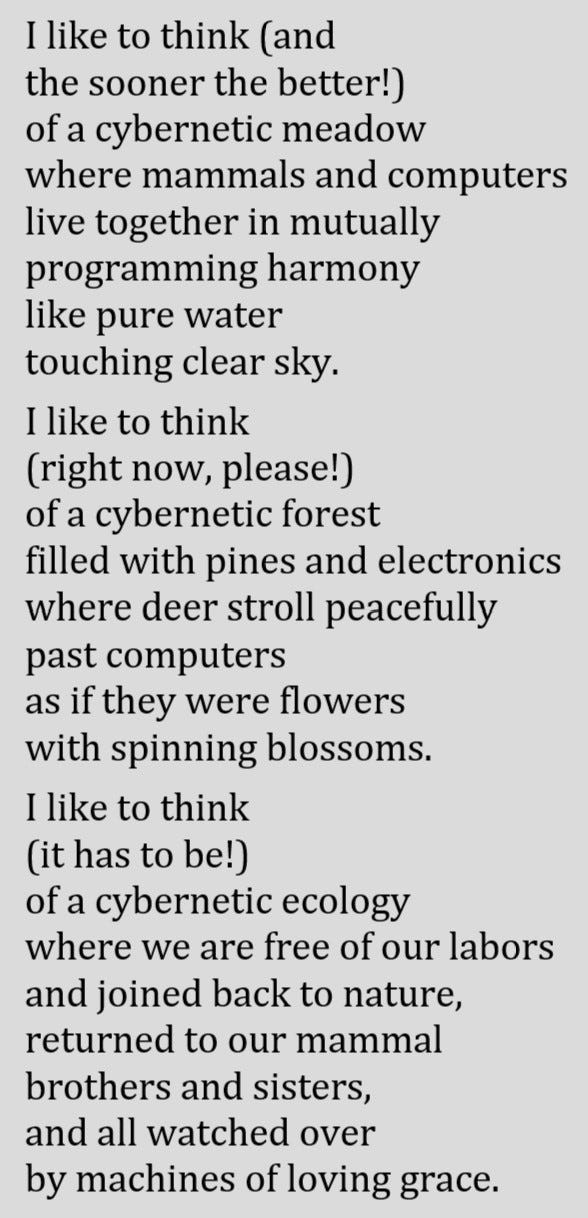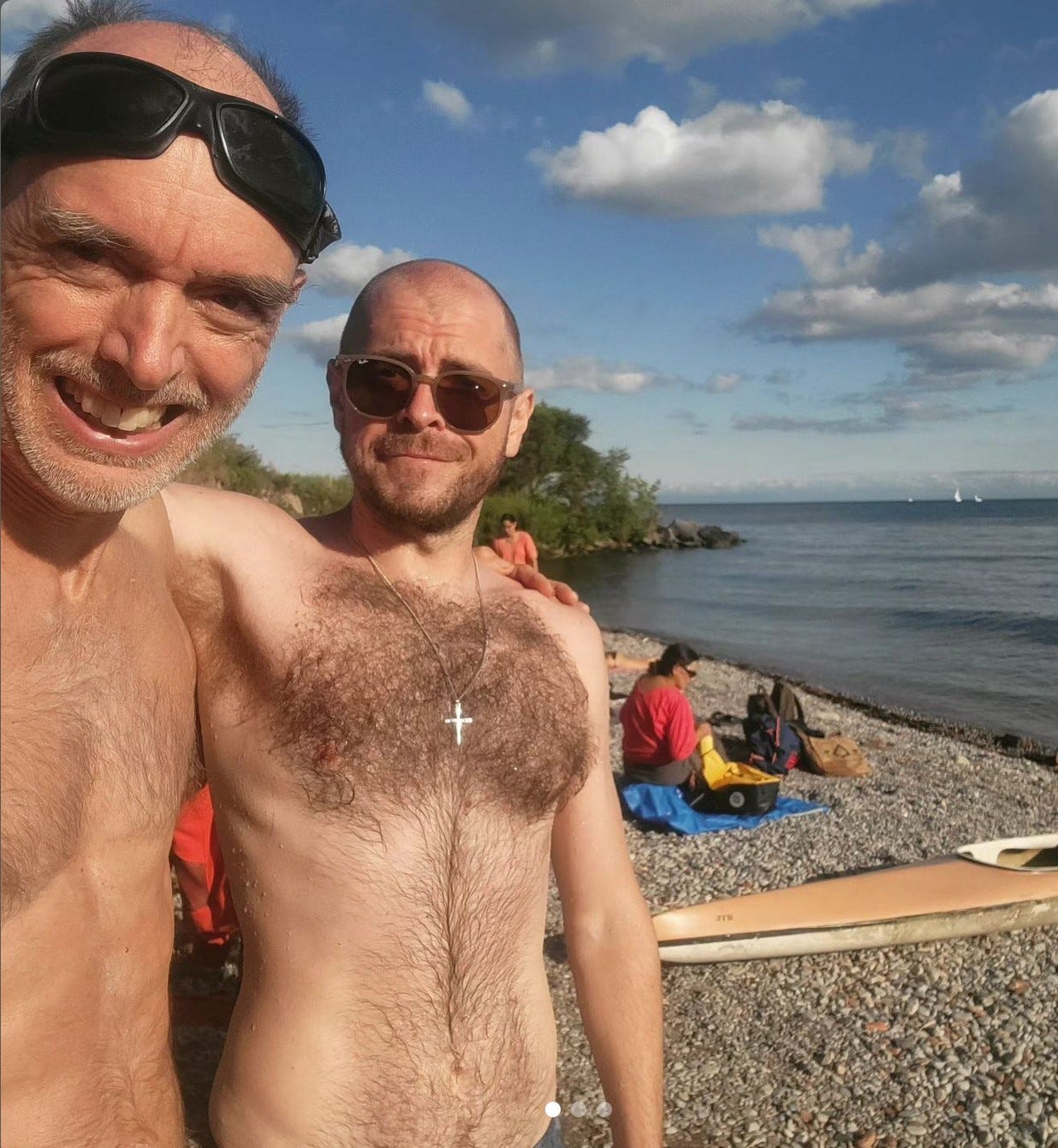TIFF 2024 Reflection: YOUR TOMORROW
Not really now not anymore.
Ali Weinstein’s YOUR TOMORROW, which takes its title from the park’s own mission statement, captures the final year of Ontario Place as we know it, shifting between the protest actions and the efforts of staff to keep Ontario Place going for what’s almost certainly its final hurrah. Through it all, ORDINARY PEOPLE keep showing up to enjoy the park, to walk its trails, enjoy the lake, or check on the tomatoes they’re cultivating near the shore. - Norm Wilner
It starts with a still frame. A static location in the transcendental style of Ozu or Bresson [i]. Hold the gaze long enough and maybe you encounter the one who’s looking, i.e., all the inevitable ergo invariable subjects of the frame, e.g., Griffith’s wind in the trees of a Lost Cause Ideology, e.g., Warren Zevon’s words, “all…these…people with no home to go back to now.”
These are the winds and trees and words and wounds that compose the Stories of Your Life. They could be stories of Nunu’s peach tomatoes handed out with tender laughter, or a Mann who interfaces with multitudes segmenting a watermelon; of Doug Ford, Walt Whitman, or Whit Stillman; of Peppa Pig squealing with glee at the lyrics to Grampy Pig’s Blues [ii]; they could be Plutarch and Pliny the Younger contemplating the virtue of self-control in public life and the values of friendship; or Heidegger and Heraclitus discussing the eternal fourfold flux of earth, sky, mortals, and yes even the mersive [iii] divinities; they could be the teens wielding traffic wands to the tune of “All The Strange Ways We Might Be Together.” [ieee]
YOUR FUTURE is The Story of all these people that once congregated at Ontario Place now subject to yet another whim of the neoliberal death drive, subject to something called a Therme Spa’s Prosthetics of Place. To quote that previously mentioned poet laureate, Peppa Pig, “Yuck. Disgusting.”
Scrub back a bit and even if you weren’t there, the editor in you might find in these frames the story of your place,
Ali Weinstein’s Your Tomorrow is a time capsule that shows Ontario Place in all its facets. Ontario Place was a place where people came in and did their own art on all hours of the day. There’s a warmth Ali Weinstein’s observational approach, capturing Ontarians relationship to a land we didn’t know was scarce. […] Your Tomorrow shows Ontario Place as both timeless and relevant to modern citizens. Anyone could just walk on the beach and do their own nighttime impromptu photoshoots or just watch people pass. This relevance makes the documentary sadder because it’s another part of the province with a steel fence guarding it. The silhouettes we see are forever… [iv]
Looking for something present everywhere even as it begins to disappear, Weinstein observes how what’s lost and gone is not a Pebble Beach, not an amusement park, not a jingle, not the 70 x 100 feet of latent space NORTH OF SUPERIOR, not the votive candle lit for Terence Malick’s dead brother, but only a predictable regression to the mean property valuation of Proust’s place name, the place where we were together, once, all watched over not by machines [v] but by phosphenes of loving grace.
If this really is the end of Ontario Place, Weinstein captures it for posterity, demonstrating that the park was still doing exactly what it was designed to do for Canadians, and anyone else who stopped by: give them a place to stand[vi], and a place to grow. - Norm Wilner
The Ford government’s free market approach to this concept of growth mistakes our place for yet more owned space to be guarded by the same teens, now armed with tasers instead of wands, so it can be fenced off for hydrothermic luxury, soonafter sub-leased to the hydraulic fracking set, then once these ecodemonic forces find they’re ruinning out of dopamine they’ll eye our prefrontal cortexes for development as the final commodifiable standing reserve.
And what will all this securitization vouchsafe us of their plunder? Some silver teeth? Some all-too flammable nitrate recording of THE WAY WE WERE before our identities were converged and submerged [vii] into the algorithmic order of a World Gone Wrong?
If called to account for what keeps happening ON THE BEACH [viii], I’d love to share the optimism inherent in Norm Wilner’s words If this really is the end. I’d love to side with the mystic James Finlay’s statement that if our hearts can’t forgive us, then God is greater than our hearts. I’d love to hope that there remain regenerative places to start, places to go, places to better know the meaning of the word omniveillance, places to grow old together among the landing cormorants who eat time.
Perhaps I will be a bit more positive after getting soaked by what Therme advertorializes as their “affordable staycation destination.” Except there is a nagging circumspection that the degenerative drive to redevelopment, like capital, like AI, is a runaway feedback process from outside the city and after the law, outside of human control, a noumenal Langolier we simply Kant outpace, “not really now not anymore.” [ix]
Lossiness less about absence than cessation, the worldhood of the world out of reach as Facebook group photos of Old Ontario Place Employees, even in Cinema Too I’m having a hard time seeing all these “Pieces” of You, like a Jewel when first its new, “walled off because they’re no longer ours” [x]—so let me ask The Therme Group my own Question Concerning Deontology, “What is it that happens in ORDINARY PEOPLE when our feelings are ignored?”
[i] As Michael Haneke wrote of Robert Bresson’s oeuvre, “Everything dissolves into pure relationality, and it is up to the viewer to draw conclusions from the sum of the arrangements.”
[ii] Grampy Pig’s Blues, by Grampy Pig.
[iii] A poem I read at the 2024 Mersivity Conference at Michael Hough Beach
[iii.e] The optimism of which belies it’s jet-black satire of the Gardiner-variety vehicular behavioural mysteries.
[iv] Paolo Kagaoan. In the Seats TIFF 2024: Our Review of ‘Your Tomorrow’
[v] All Watched Over By Machines of Loving Grace by Richard Brautigan
[vi] Calling to mind the poem from STALKER by Arseny Tarkovsky, Trans - Alex Nemser and Nariman Skakov
[vii] Why? Capital never pulls off its mask to reveal a grinning death’s head skull, to paraphrase Mark Fisher, but only some eyeless kittens monetizable as all-get-out on Instagram, or Julia Stratton of Post Media’s Content Works half-heartedly branding the spa’s “holistic approach to health,” as well as their recognition “that that wellness means something different for each person.”
[viii] As Steve Mann wrote in a Toronto Star op-ed,
Therme Group’s proposal to move the existing pebble beach to the west side of the island, right beside Lake Shore Blvd. W., would mean that there will be days after storms when the beach will have to be closed to swimming. That’s because its choice of relocation is beside the combined sewer outfall and the proposed west-facing location faces the prevailing winds that trap debris (used condoms, tampons, cans, bottles, etc.) in the nook that we call the “armpit of the breakwall.”
That’s the absolute worst choice of location for the beach.
When trying to understand the logic of moving the beach to the dirtiest, noisiest and windiest corner of the island, a cynic might see this as an attempt to “ensewage” the beach to sell more pool passes.
[ix] Alan Garner, Red Shift
[x] Norm Wilner at TIFF’s YOUR FUTURE premiere Q and A.



